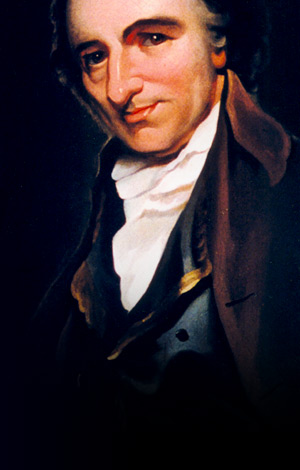Articles
A Civil Religion
June 20, 2012
Copyright Maurice Bisheff, Ph.D.
Some call it a “crisis in secularism”, others a crisis in “fundamentalism”, and still others call governance in a crisis in “legitimacy”, “global justice”, or the “common good” today around the world. Fresh formulations of the idea of “civil religion” may serve as a moral compass for individuals and collectives to “create their own bridge while they walk on it” while respecting codes and traditions in their society.
A civil religion, according to Professor Robert Bellah, points to conscious citizen vigilance, understanding, and sacrificial action in order “to subordinate the nation to ethical principles that both infuse it and transcend it in terms of which it (and its political life) should be judged.” These principles can be either of a religious or secular source. Civil religion constitutes a symbolic, historical narrative of transcendent principles constituted by its citizens through day-to-day social norms, laws, and taught to its citizens through its myths, traditions, and principles. These myths, symbols, and principles inspire citizens to obey and reflect upon the laws of the land smuggling the sacred into the secular, the transcendent into the imminent.
The use of religious traditions in influencing civil religions can have a beneficial or malevolent effect. Universal religious principles and insights have influenced the development of civil commitments to individual human rights, protection of the most vulnerable, constitutional principles, and legal enactments in many cultures East and West. The Golden Rule, found in every universal religion, is a principle which has influenced conceptions of justice. On the other hand, regimes have employed religious principles and symbols to maintain dominance and social injustice as well.
In democratic societies, civil religions can reflect a republic of conscience. We can look for opportunities in the civic sphere to open dialogue to help awaken our conscience, extend basic human rights for ourselves and others in the name of the values and traditions of our civil religion, correct social injustice through political action, while having a commitment to exemplifying a fundamental spirit of civic community through honoring its rules, codes, and laws. A civil religion thus provides a code of legitimacy and access to civil government, supported by transcendent ends and myths, for evoking one’s conscience, reason, and voice for a common good in expanding theatres of participation.
An active civil religion in societies with deeper and more extended forms of democracy can mitigate the coercive civil imposition of a dominant ideology and laws which favors one elite group and discourages or suppresses more universal citizen self-definition and freedom. For example, the struggle for the separation of church and state in many nations came after the imposition of one religion (and its civil interpretation) uniformly on its population which suppressed others’ freedoms. Different nations have reconciled religion and civil government with varying civil narratives, such political parties named “Christian Democrats”, adding up to “civil religion”.
In addition, the secular dominance of a political ideology with a dictatorial, totalitarian government or monarchy and its revolutionary overthrow can result in a new narrative of a civil religion to promote freedoms by protecting against intrusion. This revolution can be aided by traditional or sacred symbols or scriptures or appeals to higher, transcendent philosophical principles though there is no guarantee that revolutions can be guided, once underway, to aid in collective betterment.
In addition, as Harvey Cox wrote, the extended market itself is a religion. The self-exciting market is viewed as a religion in the sense of a natural lawful force or mechanism which cannot be stopped, only adapted to. This mythical social conception, tied into evolutionary versions of Darwinism, can be transcended through new symbols derived from our traditions of religion, social justice, and common sense about fairness. One example could be a more principled view of social democracy as not an extension, but a unique evolving form of governance stressing human dignity and opportunity. Social democracy, embedding the market into social democratic forms, began as religious-inspired movements in England and elsewhere. Thus, the underlying ethos of civil religion, its universal principles (beyond specific circumstances) are important for imagining real possibilities for extending human and ecological rights into the economic sphere through deliberate and inclusive democratic action, transmuting unjust crony corporate capitalism and militarism into more just and egalitarian markets to meet diverse social and ecological needs.
However, a potent and dynamic civil religion is based on how attuned citizens are to their “conscience”, to their highest principles, their willingness to sacrifice, and effectively reason, with facts and common sense, to protect the ideals and laws of their civil religion. Too often societies, including democratic societies, have used civil government machinery and narrow utilitarian narratives such as “Manifest Destiny” or “Civilizing the Natives” to exclude and imprison minorities or marginalize indigenous cultures.
So is an appeal to abstract constitutional thinking, bills of rights, and patriotism enough as Professor Jurgen Habermas suggests? While we need to be more vigilant and politically attentive and active to protect the dialogue in the public square, making sure existing Constitutional principles and laws we learn to cherish are not subverted and corrupted from within, are these sufficient to evoke citizen self-determination and autonomy? How do we move from the necessary conditions of negative liberty (freedom from) to positive liberty (freedom with others)? What type of education do we need? How do we create social structures which both control abuses of power from leaders and citizens alike, yet allow for the continuing enablement of positive creativity and more self-determination on the part of citizens and their sustainable communities?
In democratic societies, civil government, civil society, and most of all, its citizens, must play a role in being enriched and inspired by civil religion and its transcendent ideals, while maintaining codes of conduct and law conducive to maintaining these conditions without one dominative take-over or ideology by any actors in any sphere of life; thus always referring and pointing to a transcendent basis of unity (involving a creative unifying or turning) which revitalizes a healthy social and economic secular pluralism. The Parliament of World Religions, for example, is a global initiative with a sincere dialogue in the interests of more global civility, mutual respect and understanding, and even a possible exploration of ethical similarities and unities among all the great religions. If the values are universal, then the impulse for unifying as turning inspires and elicits interdependence from within, not simply as an alliance of external forms or laws. These become revolutionary touchstones around which dialogue can revolve.
Thus, sustaining “civil religion” requires continually new understandings. It is revolutionary since its transcendent values provide criteria for assessing current political and social structures. If taken up by values-based leadership, ethical truths and impulses behind religious and secular forms, can transform and transcend sectarian and cynical ideological divisions, through a creative call, based on universal principles, such as human dignity, to individual conscience and a common principled dialogue among diverse individuals and groups. Many recent mostly non-violent revolutions attest to this as a real possibility.
However, societies need heroes, such as Gandhi, King, Mandela, as exemplars of these higher ideals to contemplate, articulate, inspire and instantiate a thread of the ideals of “civic religion” and wise and disinterested legislators and expert public officials to enact laws and self-correct. We can be inspired by different societies, admire their heroes and cultural excellence, learn from their public values and policies, while becoming citizens and nations of an emergent global civil religion or world culture. This is not meant to be a world government. Rather, this can be viewed as a graduated spectrum from global to local needs and expressions which helps citizens and nations themselves have more “freedom” from one source of dominative coercion or thought form(i.e. market, military, or religious); yet linking to real global public policy for engaging social and ecological injustice, and supporting more muscular international law based on mutual respect of many civil religions through stressing global ethics, human rights, and ecological justice.


